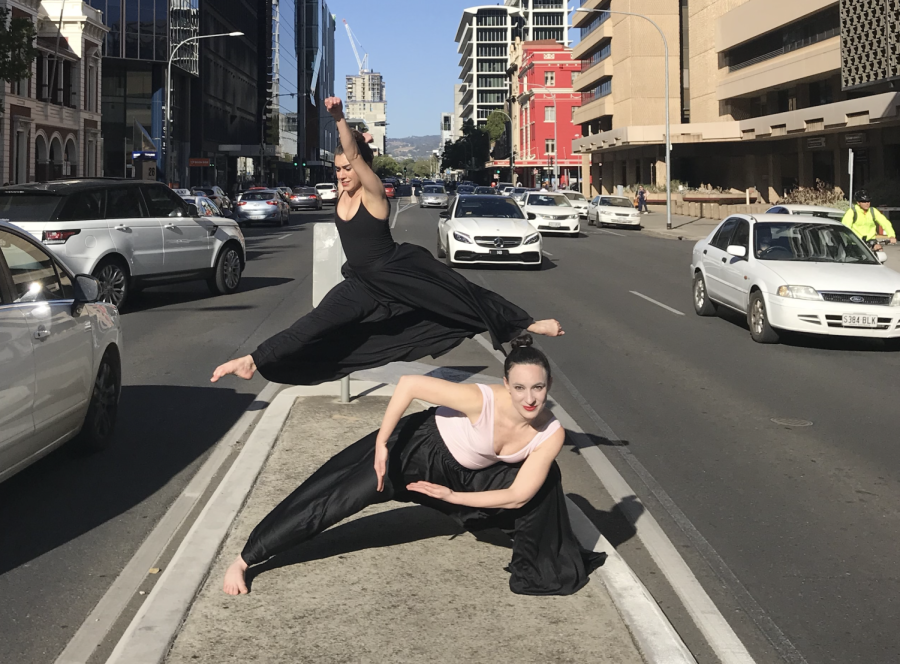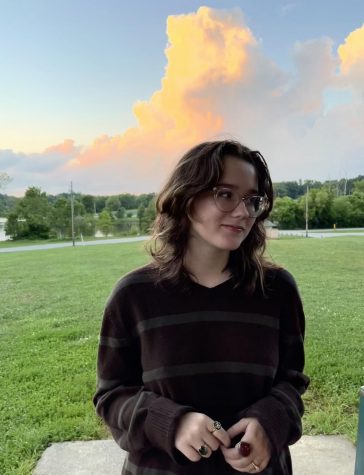Grinnell Artists: Amanda Lee
Visiting Assistant Professor of Theatre, Dance, and Performance Studies Amanda Lee (bottom).
May 1, 2023
When looking at the world of Jewish folk dance, Amanda Lee sees not only a dance, but a form of political protest, community and storytelling.
Lee, who is currently a visiting assistant professor of theatre, dance and performance studies at Grinnell College, is in the process of wrapping up her MFA thesis on Jewish folk dance titled “Communal Acts of Resistance.” The thesis aims to explore the importance of dance to the Jewish diaspora in Eastern Europe, North Africa, the Middle East and even the Caribbean. It is the culmination of her MFA program at the University of Wisconsin, Milwaukee, which she will finish in June.
Prior to teaching dance at Grinnell, Lee previously served as an assistant visiting professor at the College from 2019 to 2021 in the French and Arabic department. Her return to Grinnell comes after her time as a visiting assistant professor at Boston University, where she taught both French and Performance Studies. Lee said that she appreciated the opportunity to teach at a liberal arts college again.
“The students’ minds are very interdisciplinary,” said Lee. “One thing I really love is having the chance to dialogue on so many different levels… and knowing my students are going to bring all kinds of interesting research questions to class.”
Lee’s background in dance is extensive. She began her dance career primarily in ballet, before switching to more contemporary styles. Jewish folk dance, specifically, runs deep in Lee’s family — her grandmother practiced it, dancing for the leftist New Dance Group in the early 20th century. Her Jewish identity as well as her background in dance led her to pursue her master’s degree, hoping to focus more on Jewish folk dance as a whole.
To Lee, studying folk dance is important for many different reasons. “I like the idea of thinking about folk dance as a way to preserve tradition through body-to-body transmission,” she said. “As a kind of diasporic practice that connects Jewish folk dance through the diaspora.”
Lee also sees Jewish folk dance as a manifestation of how the Jewish diaspora connects to their heritage. In preparation for her thesis, she studied Yiddish music and its connection to storytelling within the Jewish art scene.
In addition to this, her research interests also include international labor movements and the connection between art and politics, a passion that comes from her time with her grandmother. “We would always practice Jewish folk dances together, but she would also [tell me], ‘Okay, these are the ways that we practiced labor organizing through dance.”
Lee is currently teaching a special topic course on Jewish folk dance within the Theatre Department. She routinely holds workshops and events for students to explore the world of Jewish folk dance, including on May 1, in observance of Jewish Culture Week. This will be followed by a performance of the dance on May 5, which serves as the culmination of her MFA research.



















































